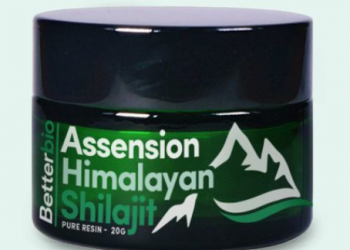Bearded dragons, one of the most popular pet reptiles, captivate with their distinct personalities and relatively easy care. Central to their well-being is their diet, a subject often shrouded in questions and uncertainties. Among the most common questions are “Can bearded dragons eat cucumbers?” and “Can bearded dragons eat strawberries? Yes, they can. Understanding these intriguing animals’ dietary requirements is essential for their well-being and longevity.
Bearded dragons, primarily herbivorous as adults, require a diet rich in vegetables and fruits, complemented by appropriate protein sources. Cucumbers and strawberries, often regarded as refreshing treats for humans, also emerge as potential dietary components for these reptiles. However, it’s vital to delve into these foods’ nutritional values and potential impacts on bearded dragons. The Study shows that the central bearded dragon primarily consumes a protein-rich, opportunistic diet of various insects and leafy vegetables, mirroring their natural dietary habits.
Know the suitability of cucumbers and strawberries in a bearded dragon’s diet, backed by expert insights and nutritional analysis, to guide owners toward making informed feeding choices.
Can Bearded Dragons Eat Cucumbers?
Bearded dragons, popular pets known for their distinct personality and dietary habits, often spark curiosity regarding their diet. Among the many food items considered, cucumbers emerge as a potential snack. However, it’s essential to understand their impact on a bearded dragon’s health.
Nutritional Profile of Cucumbers
Cucumbers are predominantly water, making up around 95% of their weight. This high water content can support hydration, a critical aspect of a bearded dragon’s health, especially in captive environments where dehydration is a risk.
Other than water, cucumbers give a modest measure of nutrients, like vitamin K, and have low-calorie content.
They also contain small amounts of other nutrients like potassium and vitamin C, but their overall nutritional value is limited due to their high water content.
Benefits of Cucumbers for Bearded Dragons
The primary benefit of cucumbers for bearded dragons lies in their hydration capability. Maintaining hydration is vital in hot, arid environments where these reptiles originate. Cucumbers can be a refreshing snack, especially during warmer months.
Moreover, the soft texture of cucumbers makes them easy to chew and digest for bearded dragons, reducing the risk of choking.
How to Properly Prepare and Serve Cucumbers?
When introducing cucumbers into a bearded dragon’s diet, it’s crucial to do so correctly:
Opt for organic cucumbers to reduce the risk of pesticide exposure.
Always wash cucumbers thoroughly under running water to remove any residues or contaminants.
Peel the cucumbers to eliminate the tough skin that might be hard for the dragon to digest. Cut them into small, manageable pieces to prevent choking hazards.
Offer cucumbers as a supplement to a balanced diet. They should not replace staple foods high in nutrients, such as leafy greens and appropriately sized insects.
Feed cucumbers occasionally, not as a daily food item. Once or twice a week is sufficient.
Can Bearded Dragons Eat Strawberries?
Bearded dragons, with their varied diets and distinct dietary needs, often prompt pet owners to explore different food options for them. Strawberries, with their vibrant color and juicy texture, are a fruit that many bearded dragon owners consider. Understanding the suitability of strawberries in diet of bearded dragon is essential for their overall health and well-being.
Nutritional Profile of Strawberries
Strawberries are a nutrient-rich organic product known for their high vitamin C content. They also contain other vitamins such as vitamin K, vitamin B9 (folate), and manganese.
As far as their macronutrient profile, strawberries are low in calories and sugar, and they provide a small amount of fiber.
They also contain antioxidants and beneficial plant compounds, contributing to their general medical advantages.
Benefits of Strawberries for Bearded Dragons
The advantages of strawberries for bearded dragons are several.
First and foremost, vitamin C content can boost immune health, which is crucial for these reptiles.
The antioxidants present in strawberries can also help reduce oxidative stress and inflammation.
Furthermore, their water content can aid in hydration, an important aspect of a bearded dragon’s health, especially in a controlled environment like a terrarium.
The surface and taste of strawberries can also add variety to a bearded dragon’s diet, stimulating their appetite and interest in food.
Potential Risks or Downsides of Strawberries
Despite their benefits, there are potential risks associated with feeding strawberries to bearded dragons.
One of the primary concerns is their sugar content.
Although not high, frequent consumption of strawberries can lead to digestive issues and potentially obesity in bearded dragons.
Also, like many fruits, strawberries have an imbalanced calcium-to-phosphorus ratio, which is not ideal for bearded dragons.
A diet too high in phosphorus can hinder calcium absorption, leading to metabolic bone disease, a common health issue in captive reptiles.
How to Properly Prepare and Serve Strawberries
To safely include strawberries in a bearded dragon’s diet, follow these guidelines:
Prefer organic strawberries to reduce the risk of pesticide contamination.
Thoroughly rinse the strawberries under flowing water to eliminate any dirt or residue.
Cut the strawberries into small, bite-sized pieces to avoid choking hazards and to facilitate digestion.
Offer strawberries as a rare treat rather than a regular part of their diet. A modest amount once weekly is adequate.
Keep an eye on your bearded dragon for any signs of discomfort or digestive issues following their consumption of strawberries.
Can You Combine Cucumbers and Strawberries with Other Diet Components?
Combining cucumbers and strawberries with other dietary components for bearded dragons is not only possible but beneficial, as it diversifies their diet. The two cucumbers and strawberries can be blended in with staple greens like collard greens, mustard greens, and dandelion greens, which are nutritionally rich. Insects like crickets or mealworms, fundamental for protein, can likewise be important for this different diet. In any case, balance is vital. Cucumbers and strawberries ought to be treated, not mainstays, to prevent nutritional imbalances.
The Bottom Line
Cucumbers and strawberries can be safely included in a bearded dragon’s diet when prepared and served correctly. Organic, thoroughly washed, and appropriately portioned, these foods offer hydration, essential vitamins, and variety. However, they should only be occasional treats due to their low nutritional density and sugar content.









